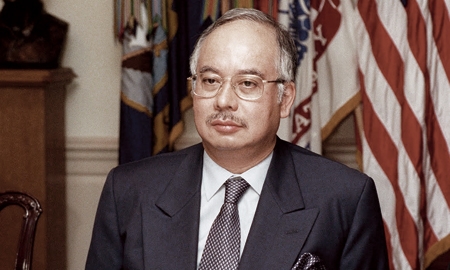Diversity permeates Malaysia, whether you look at the country from a social, political, or geographical standpoint. The topography of peninsular Malaysia is characterized by central mountain ranges running from north to south, with its highest peak Gunung Tahan rising 7,175ft above sea level. Lush jungle carpets the Cameron Highlands, one of the country’s most extensive hill stations, and contrasts with the fine sandy beaches that line its coasts and islands.
Malaysia’s multi-ethnic multi-religious society is made up of a population comprising around 60% Malay, 26% Chinese, and 14% Indian people. A census in 2000 found the country’s religious make-up to be 60.4% Muslim (or Islam – the official religion in Malaysia); then Buddhist 19.2%; Christian 9.1%; Hindu 6.3%; Confucianism, Taoism, and other traditional Chinese religions 2.6%; other or unknown religions 1.5%; and those declaring none comprising 0.8% of the population.
These communities exist in relative harmony. However, while Malays have benefitted over the past few decades from positive discrimination in areas of business, education and the civil service, Indians are still among the poorest people in Malaysia, and the economically powerful Chinese community remain the more dominant group in politics.
“Malaysia is good when it comes to unity and diversity because our nation is so diverse in terms of the country, our way of life, and our religion, and that is what Malaysia is all about,” says Datuk Seri Tengku Adnan B. Tengku Mansor, Secretary General of the ruling United Malays National Organization (UMNO).
“UMNO has a very good organization structure for developing good relationships with the Islamic community.
We have a progressive view. We are not only about what happened yesterday, but also today and tomorrow.” Datuk Seri Tengku Adnan Bin Tengku Mansor, Secretary General of UMNO |
The country’s disparate political arena is no less of a kaleidoscope reflecting this mosaic society. Malayasia has been a multi-party state since its inception, and both the government and the opposition are traditionally formed by coalitions of parties, with each group campaigning both separately yet also together for the whole party at the same time. Two large coalitions currently dominate the political scene: the incumbent Barisan Nasional (National Front), known by its initials BN and comprising 13 political parties, and the opposition Pakatan Rakyat (People’s Alliance), referred to as the PA or Pakatan, which is comprised of three political groups.
So in order to rule effectively, consensus building and negotiation are essential, as governments form compacts between numerous individual groups, giving a unique angle to Malaysian politics. The unusual system is a reflection of the ethnic and religious composition of the country.
“When I came to UMNO, I understood the rituals [of parties fighting against other parties],” says Mr. Tengku, who served as Minister of Tourism from 2006 to 2008 before being appointed as the party’s Secretary General in March 2008. “UMNO has a very good structure of organization for developing good relationships with the Islamic community. We are currently having some problems and challenges in various fields, but of course we care for our people, and it is good that they understand things have improved and they are changing for the better.”
BN won the last election in 2008, and is expected to win the next round slated for 2013 (although the Economist Intelligence Unit suspects it may come earlier and reports that the BN hopes to win with a two-thirds majority).
UMNO is Malaysia’s largest political party and a founding member of the BN. Established in 1946, it allied with the Malaysian Chinese Association (MCA) in 1951, then later in 1954 the Malaysian Indian Congress also joined the UMNO coalition, giving it a far-reaching appeal across the country’s ethnic mix. It has played a major part in Malaysia’s political development since its independence from the U.K. in 1957.
UMNO emphasizes the struggle to uphold Malay nationalism and the dignity of race, religion and country as being at the core of its foundation. The party also aspires to protect the Malay culture as the national culture, and to uphold, defend and expand Islam. It has raised the profile of Shari’a (Islamic law) in Malaysian law, politics, and society to gain support among its Malay constituency, which is predominantly Sunni Muslim. However, the organization’s advocacy of the rights of Malays as taking precedence is sometimes viewed by non-Malays as coming at the expense of non-Malay rights.
The party defines itself as Malay nationalist, moderate Islamist, and conservative, representing the Malays of Malaysia. However, membership is open to any Bumiputra (indigenous Malaysian), including people such as the non-Malay and usually non-Muslim Kadazan, Iban, and Dayak of East Malaysia.
“We have a progressive view. What’s good about our organization is we want to move forward. We are not only about what happened yesterday, but also today and tomorrow,” says Mr. Tengku. “I go out every night and try to listen to what the youth has to say. I listen to their feedback and opinions.”
The government’s national plan for future development is called 1Malaysia. Announced in September 2008, it calls for governmental agencies and civil servants to more strongly emphasize ethnic harmony, national unity and efficient governance. The ethos has been incorporated into IMNO’s official ideology, as well as 1Malaysia’s philosophy of ‘people first, performance now.’

0 COMMENTS